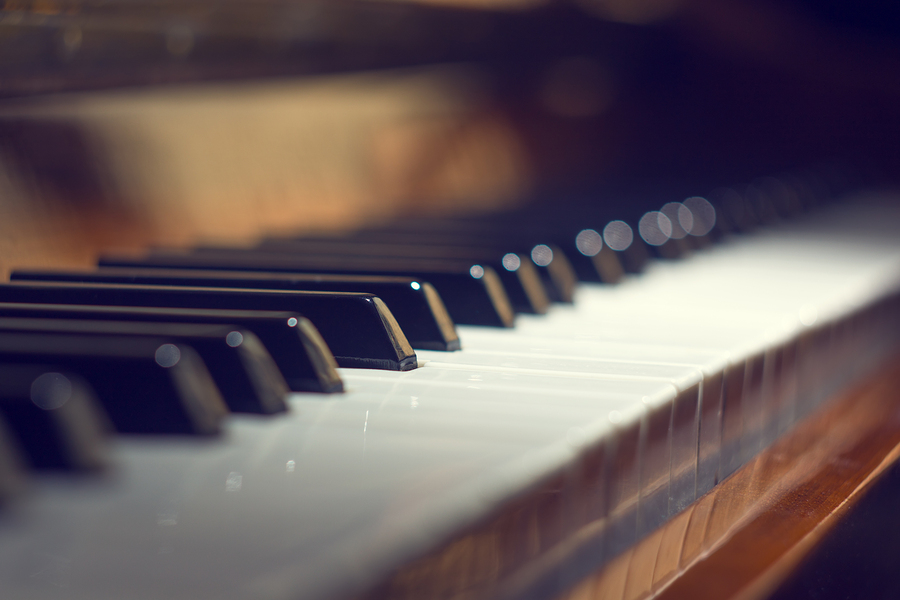Last year I tried a musical experiment during the days of Lent (I wrote about it here). This year I attempted to do something similar. My musical choice was the “Suites for Keyboard” by George Frederic Handel.
We are most familiar with Handel because of his famous “Messiah” oratorio. I did not realize that he also composed solo pieces for the keyboard. I am glad to have learned something new. You can teach old dogs new tricks.
Note that Handel did not write for the piano because it did not yet exist in his day (early 1700s). Instead he wrote for the harpsichord. In fact, in his will he bequeathed his “large harpsichord” to a friend who later donated the instrument to King George III.
The music I listened to, however, was performed on the modern day piano. There are dramatic differences in the two instruments both in tonality and expression. But the notes remain the same.
As I spent these past six weeks listening to the music I began to hear nuances that reflected the writer (the composer), but also genius in the performer which reflected the pianist (the reader). Thus I found myself ultimately reflecting on what we do when we write our books and when we read them.
The Writer
Baroque keyboard music, like Handel’s and Bach’s, have always been fascinating to me. There is a mathematical precision in how it is written and performed. This is partly due to the musical style of the era, but also of the instrument. The strings in a piano are struck by a “hammer” but in the harpsichord they are plucked. The piano has seven octaves of keys and the harpsichord only five. And because of its construction the sound on a harpsichord is much softer so a note cannot be held (sustained) for a long time. Therefore you rarely hear a languid type of song written for the harpsichord.
The more I listen to a piece of Baroque music the patterns begin to emerge. What was in the left hand moves to the right or a melody reappears in the lower keys after disappearing from the upper keys. Often I let such music play in the background while my attention is on something else. But repeated listening to these Handel suites revealed intentionality in the writing that was missed the first time around.
The same for writers of books. You might have a storyline or an argument that is on the surface, but underneath you have intentionality. Story arc, character development, red herrings, logical construction, tension building…all sorts of things you have learned to put into your work to carry the weight of the story or the premise.
In “Passacaglia, Suite in g minor, HWV 432” George Handel has the piece start simple but it begins to speed up to a blindingly fast finish (click to hear on a piano or on a harpsichord and see the musical score). It felt like the end of a Robert Ludlum or Lee Child thriller. I was exhausted! And I wasn’t even playing.
So too the writer of a great book leaves their reader spent and yet satisfied. And wanting to read another.
The Reader
In this metaphor the reader is the performer of the music, and the CD I experienced was by Daria van den Bercken. She is genius. It was her TED talk on Handel’s keyboard suites that started this whole adventure. You owe it to yourself to spend ten minutes and watch her presentation. (I embedded it below for your convenience.)
After listening to her CD a few times I chose a different performer, out of curiosity. I was stunned at the difference.
Van den Bercken’s touch and interpretation of the music was so very different than the other person I heard. Where Bercken was lyrical the other pianist was mechanical. And both were playing from the same musical score.
Of course, in the music sphere we know that an individual’s talent and experience can turn certain notes into a masterpiece.
But in the writing world, our readers are reading the same words…but hearing something different. You, as the writer, cannot control how your reader “hears” your words. All you can do is supply the best words possible. One reader may hear music while another may hear sorrow. One reader may taste sunshine while the other chews dust. And such is the reading experience. Even while in community it becomes an individualistic experience like no other.
Thoughts
Not all of us can be as gifted as George Handel or Daria van den Bercken, but we can write works of enduring legacy. We can read and experience the words of other craftsmen. We, who are involved in the arts, are privileged to express our creativity in the hopes of making a difference in the lives of those our art can touch.
Enjoy Daria van den Bercken’s Ted Talk:



 Add Something Good for Lent
Add Something Good for Lent

What a great idea.
Music, like all art, adds a quality to life which draws us out of–some would say above–the daily grind for bread and shelter. It touches a part of us very different from our thought life.
Thanks
As a child, I begged for a piano. By the time I was thirteen, I was the regular organist for our home church. I hear music in my head when I write. That’s why I cannot listen to canned music. The ability to listen to someone else’s music while writing completely amazes me.
Thank you for my new assignment to acquire and listen to these Handel works.
All creative endeavors are a partnership between the artist and the consumer. The artist simply has to trust that the consumer will hear what the artist has written.
It never ceases to amaze me how many writers are also musicians (something to that “bard” idea of medieval times, I guess).
For another crossover of the world or words and notes, I was recently introduced to the idea of the musical palindrome — and have had fun challenging myself to find them. Then as I was researching them, I found that extended palindrome’s (Bach’s work in this area being most famous) are considered to be a reference to the crucifixion — as they are thought to form an X at the centre point… the Greek symbol of the cross.
Palindrome’s that extend for a long period (over several movements at times) are called cancrizans or ‘crab canons’.
I think I’d have to take up your 40 days of listening to really begin to “get” the brilliance of these, because at first listen I’m mostly just left with brain strain. Perhaps I’ll give it a go, though.
Steve, what a delightful, highly discerning post, I am duly impressed. I would usually expect to only find this quality of commentary in the Mensa Bulletin or perhaps a white paper on classical music during the baroque (my favorite) period. I feel painting reached its apex during this period as well.
I have a manifest theory as to how genius in the creative arts becomes material, maybe someday we will explore it.
Thanks for a thoroughly enjoyable post!
God Bless!
Proverbs 8:11
For wisdom is better than rubies. All the things that may be desired can’t be compared to it.